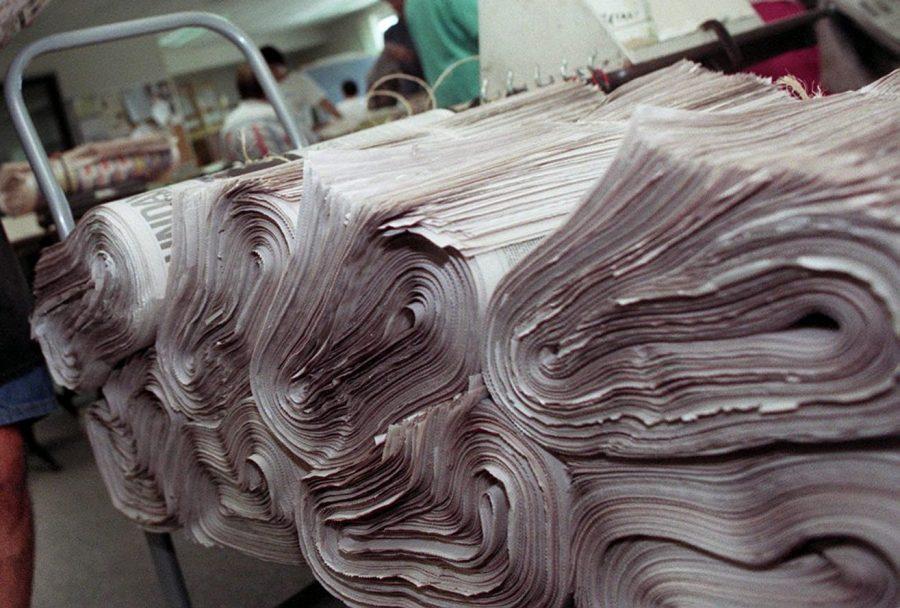On Friday, Sept. 22, the Publications Committee of Wake Forest held its first meeting in two academic years, in what was intended by Committee member and Associate Dean of the College, Tom Phillips, to be both a social event and general discussion of what challenges and opportunities student editors face.
As stated in the invitational email sent to elected faculty and student representatives, “The Publications Committee exists to support campus publications and the students who produce them.” Per the description of faculty committees listed on the university website, the Publications Committee meets “once per year or infrequently,” labeling it as a light time commitment for the elected faculty involved. The Committee, chaired by professor Remi Lanzoni, is composed of one faculty member from each academic Division and one representative from the School of Business.
During the hour-long meeting, Robert Bliss, the Committee representative from the School of Business, shared his opinions regarding the various chartered student publications on campus. Both Rachel Howland, Editor-in-chief of The Howler, and Becky Swig, Print Managing Editor of the Old Gold & Black represented their respective publications.
“I was optimistic and hoped that the people at the meeting would be able to offer interesting and applicable advice on how publications can improve on campus,” Howland said. “As an Editor-in-chief for a yearbook that I am proud of, I felt attacked in certain aspects of the meeting and especially in the response I got in the follow-up email.”
The email Howland refers to is one sent by Bliss on Sunday, Sept. 24, which shares, in-depth, his thoughts that were prompted as a result of the meeting.
“Right now, with a failing yearbook, and a troubled student newspaper, WFU is not an exemplar of a vibrant environment for student publications. Maybe the students just do not care,” Bliss said in his closing statement.
However, since the email was sent, students have reached out to the Old Gold & Black expressing concerns asking about the context and implications of this email. These students were not original recipients of this email, but given the easily transferable nature of this medium of communication, it was circulated to other students and faculty. When asked for further comments on his email, Bliss declined.
One concern that has surfaced in the wake of the meeting and circulated emails is the concept of journalistic independence and what it means to student publications.
In his email, Bliss wrote “The Howler appears to have an existential problem. This is a long-term issue and beyond the competence of the students involved in the publication to solve on their own.” In regard to the campus newspaper, he said “I have always thought the OG&B to be an amateurish student publication” and one that “lacks adult supervision.”
In response to the email, Phillips said that one faculty member “did not and does not speak for the Committee as a body and a whole” and “the Committee members have no interest in and no authority to intrude on the editorial independence of the Old Gold & Black or other chartered publications.”
Other members of the campus community outside of the Committee share similar sentiments.
“To me, having an ‘independent student newspaper’ means having a student newspaper free from editorial oversight by non-students,” said Adam Goldstein, Dean of Students. “Editorial oversight by faculty or staff would inhibit the intellectual expression of ideas by students, a value we promote as part of our educational process.”
Phoebe Zerwick, Director of Journalism and advisor to the Old Gold & Black echoed Goldstein’s comments.
“Students need to be able to hold universities accountable,” Zerwick said. “I don’t think that the Publications Committee should be overseeing or in any way interfering with student publications. Whether that’s the OGB, whether that’s the Wake Forest Review, whether that’s Her Campus, whether that’s the Odyssey, I think we need a free student press on our campus.”
As a diverse community with varying ideologies, opinions and interests, each student publication intends to serve a unique purpose on this campus.
In addition to criticizing chartered publications, Bliss brought an unchartered publication, the Wake Forest Review, into the conversation via email, saying, “it should be accepted and provided the same visibility on the university’s web site as the OG&B.”
Lanzoni disagreed.
“While [the Wake Forest Review] is indeed in its format quite proficient and serious in appearance, the content and delivery is problematic for an endorsement on a college campus,” Lanzoni wrote in an email. “Therefore, at this point, once again, I fully understand the reason why this type of publication cannot be endorsed by Student Government and funded by the Student Budget Advisory Committee.”
Founder and Executive Director of the Wake Forest Review, Sabin Sidney, in an official statement, responded to Lanzoni’s criticisms and joined others in support of the importance of editorial independence in student publications.
“While Wake Forest Review and Old Gold & Black may differ in our missions,” Sydney wrote, “we share the value of ethical journalism and have a common objective to provide honest reporting that educates our Wake Forest community.”
Erin Stephens contributed to this story.
















tdaly • Oct 17, 2017 at 8:51 am
Please ask Sabin Sidney how articles like “Our Top Ten Favorite Tweets from @realDonaldTrump” can include as number 8 the following:
“@ariannahuff is unattractive both inside and out. I fully understand why her former husband left her for a man- he made a good decision.”
This tweet is misogynistic. Attacking women for their looks is sexist. Is this how WFR shares the value of ethical journalism?
Twice I posted a comment deploring this post, twice it was deleted.
Is there no one at Wake Forest Review who does not find this tweet offensive?
Is Wake Forest Review’s message to female readers that sexism is alive and well, and they approve of tweets like this? Out of thousands of tweets is one of the best?